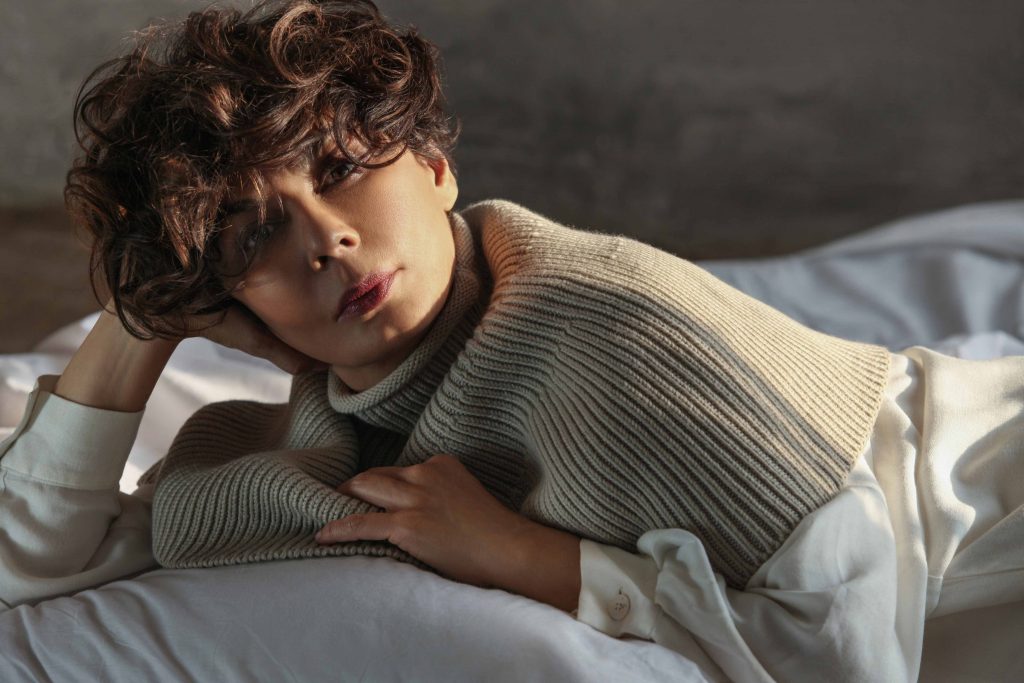 Nabila is not just an image consultant. She is involved in a range of humanitarian gigs. She is one of the founder members of GSN (Global Sustainability Network). The foundation has adopted Goal 8, a sustainable development initiative launched by the United Nations General Assembly, to eradicate modern day slavery across Pakistan by 2030.
Nabila is not just an image consultant. She is involved in a range of humanitarian gigs. She is one of the founder members of GSN (Global Sustainability Network). The foundation has adopted Goal 8, a sustainable development initiative launched by the United Nations General Assembly, to eradicate modern day slavery across Pakistan by 2030.
Nabila is also the co-founder of the Women’s Institute of Hair and Beauty at Hunar Foundation where her core focus is to provide talented individuals of any social class with vocational training to polish their skillsets. To further her efforts, Nabila has launched the home servicing Team Nabila App in Karachi as a pilot project to enable current employees and makeup artists to use her platform and earn a living in times of a global pandemic. This would ultimately benefit freelancers, single mothers and other disadvantaged Pakistanis in the future.
In an exclusive interview with OK! Pakistan, Nabila shares her vision for humanity and what it is like to be her.
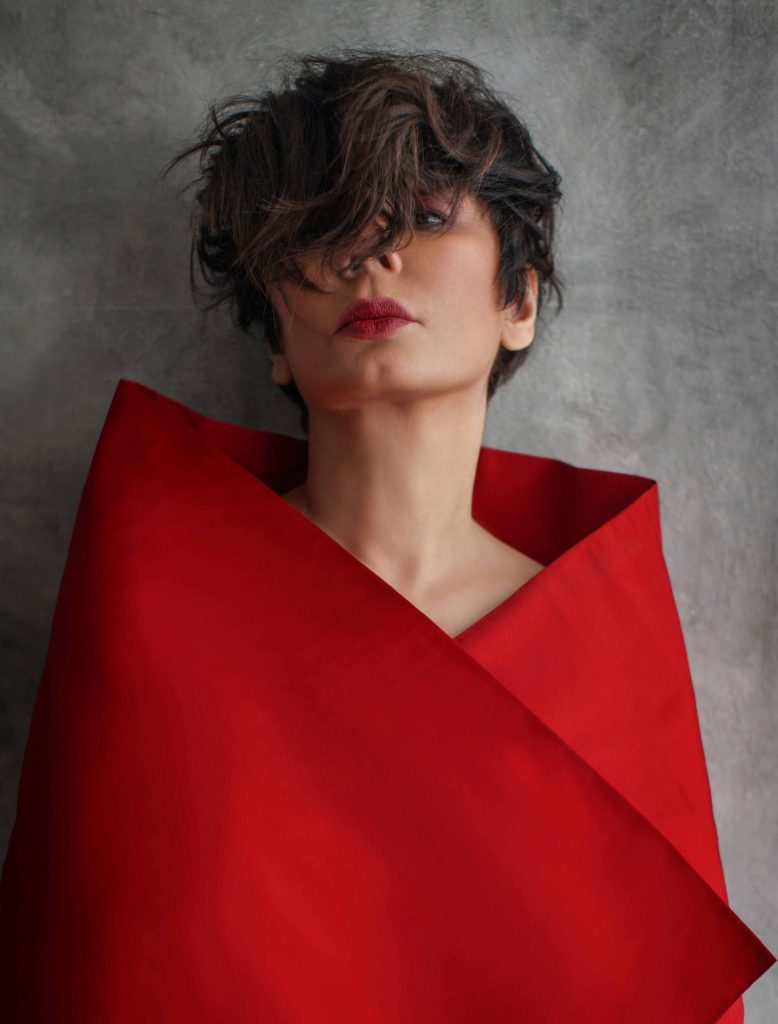 In a day and age where so much emphasis is placed on appearing picture perfect and fair, how do you hope to empower women to embrace their natural skin colour and own who they are as individuals?
In a day and age where so much emphasis is placed on appearing picture perfect and fair, how do you hope to empower women to embrace their natural skin colour and own who they are as individuals?
NABILA MAQSOOD: Our slogan for Zero Makeup is “makeup for real people.” The whole idea behind launching Zero Makeup is that if you embrace your skin colour and your unique features, there is very little you would need to do to enhance your true self than put on another face.
The makeup specializes in all shades of brown that vary from very light to mid and dark brown skin tones, which are popular among South Asians and South Americans. This is mainly to empower women and tell them to own their skin and their imperfections. These are my two bits to motivate them to accept themselves.
There is this trend in Pakistan that you need to be fair if you want your life problems solved. You can then find a good job, get good grades, marry the right person and you will be so happy because you are fair! That notion needs to change. We encourage women to be true to their skin tones and embrace and celebrate them through our campaigns. For us, brown is beautiful.
Personally, I wear a shade darker than my natural skin colour and spend time in the sun so I am tanner because darker skin photographs better, looks more chiselled and expensive, in my opinion.
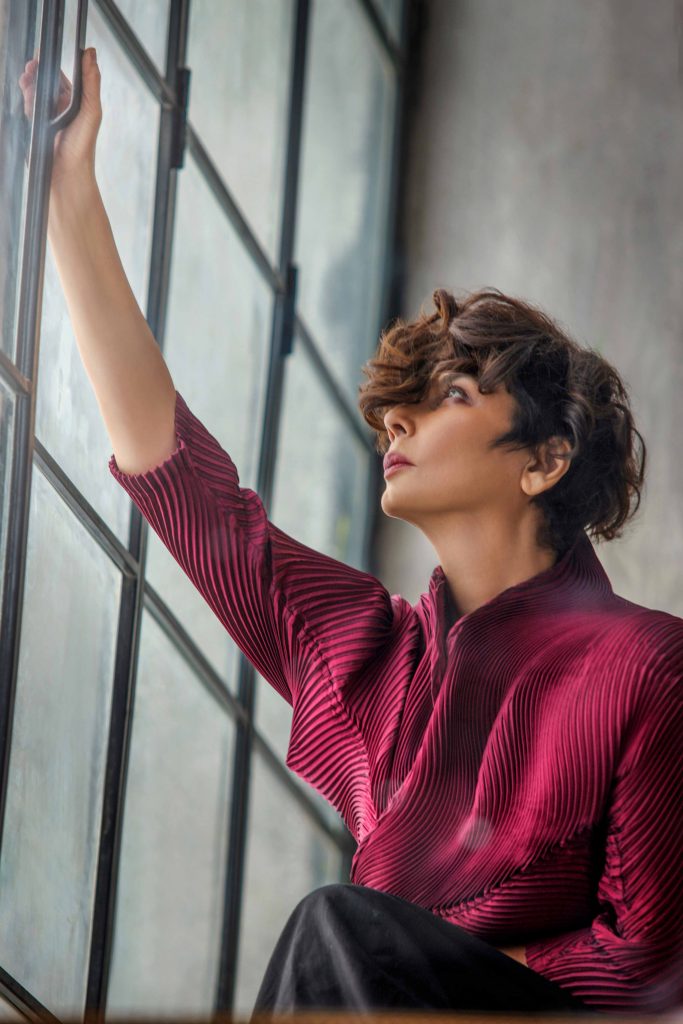 What does beauty mean to you?
What does beauty mean to you?
NM: I know it sounds cliché but beauty begins within you. Beauty can be of your thoughts, your intentions, your conscience and then it eventually comes out. Beauty to me is when you freshly come out of the shower and still look good. Everything else is an add on.
How would you assess the evolution of the beauty industry in Pakistan?
NM: It has grown like wildfire since it is an easy business in terms of managing your timings and atmosphere. You get to deal with luxurious things and glamour. It is lucrative. I wouldn’t say the beauty business has grown as per standards. There is a lot of malpractice that I see, but the industry is mushrooming.
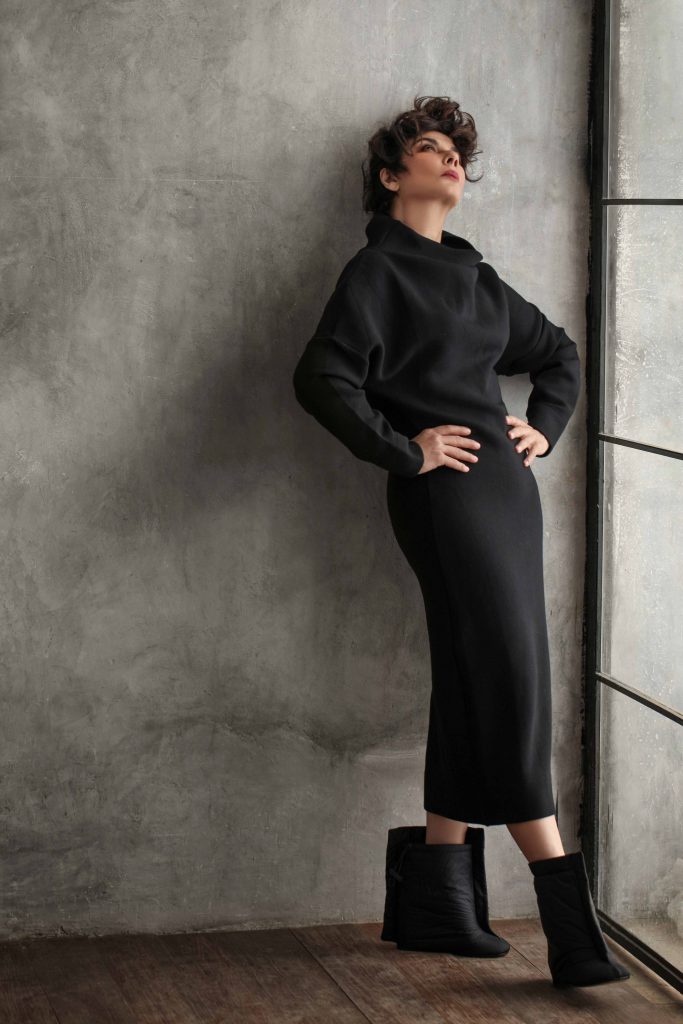 You mentioned malpractices in our beauty industry. What malpractices have you seen?
You mentioned malpractices in our beauty industry. What malpractices have you seen?
NM: Substandard products including chemicals and stepping into jurisdictions that we are not qualified for. Makeup is something you can apply and wash off but if you are experimenting with acid peels, botox or fillers, things that doctors and aestheticians are qualified for, you are treading a dangerous territory. Even safety standards are not being adhered to. Unfortunately, our clients are not empowered enough to question.
Do you feel that creativity is lacking in our beauty industry because makeup artists are imitating one another and not experimenting with original ideas of their own? Is this why our beauty business is at a standstill?
NM: Creativity would be compromised if it existed. I use the phrase “vision impossible” for such people. There is no creativity. People are in it for the money. It is easy to do bridal makeup and it is also very easy to keep repeating the same kind of makeup for the rest of our lives. I see no creativity. If you look at my work from 30 years ago, it is still current.
I always broke boundaries and startled people. I worked with the transgender community 30 years ago. I worked with wigs, fake eyelashes and papier-mâché. I do less commercial and more experimental work because I am in it for the statement of it, the art and creativity of it. Unfortunately, there is just commerce for now.
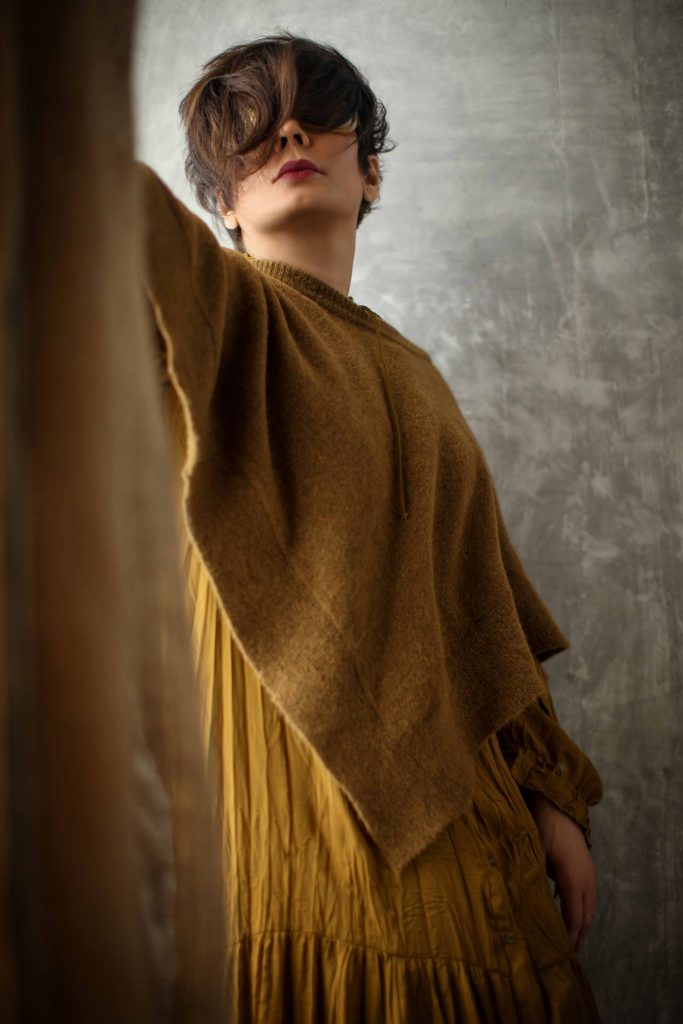 Talk to us about your Zero Makeup line. What does it achieve that other beauty brands haven’t already?
Talk to us about your Zero Makeup line. What does it achieve that other beauty brands haven’t already?
NM: The concept is very smart. It has everything one needs in a tiny, easy to carry all-in-one box containing concealer, foundation, cream blush, lip stain, translucent powder, powder puff and a mirror. It takes me just thirty seconds to do my face. The box goes into my pocket and the result of it looks like I have very little makeup on. I don’t know of another product in the world that achieves that.
My Zero Makeup line is a quick fix. It makes you look natural and is efficient because it is easy to use and carry. There is so much science that goes into the consistency and pigments of a product but I have done all the thinking for you. All you need to do is pick the right colour and in thirty seconds, you are good to go!
The Zero Makeup line also contradicts the notion of going makeup free when it is, in fact, a “makeup kit.” Isn’t this a poor marketing strategy that requires revision?
NM: The Zero line has got a lot of makeup so it looks makeup free. We have worked very closely with Richard Kirshenbaum, who is an award-winning advertising executive and a best-selling author, for the brand architecture of Zero makeup. For this specific line, I didn’t want to commit to a colour. So, there is none.
It is a very small, basic square box with “Zero” written on it and a line that reads, “I believe in less.” Zero is zero guess work, zero is minimalist makeup, zero is efficiency and zero is less space for wastage. Because it is so contradictory, it gets more attention.
My Zero label is makeup that doesn’t look like makeup but actually is.
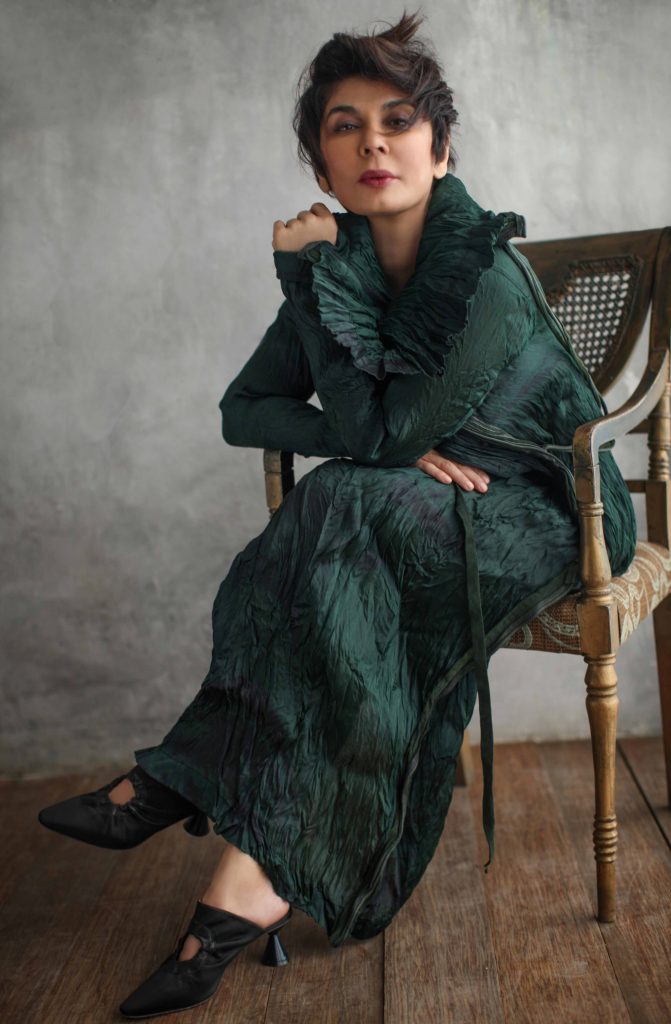 What do you genuinely make of plastic and cosmetic surgeries where people make relentless efforts to change themselves physically?
What do you genuinely make of plastic and cosmetic surgeries where people make relentless efforts to change themselves physically?
NM: Interesting! I started getting my botox and fillers when I was 35 years old. I gave them legitimacy by talking about them so openly. If you use botox and freeze your frown muscles, those lines won’t form because you can’t frown. Hence, that is a preventive procedure. But I have the confidence of loving who I am and not changing my features. There is nothing wrong with reversing your age by a few years. Knowing where to stop is the real art.
What I don’t understand is the recent trend of this over the top porn star look. I look at Kylie Jenner and her fake breasts, fake ass, lips going up to the nose and then her six million likes, and I think to myself that women find all that gorgeous and glamorous. They think that plastic and cosmetic surgeries are the future. I suppose maybe the men are liking it but I personally don’t approve.
I believe in chic versus glamorous, effortless versus perfect and quirky versus mundane. I will do anything to maintain myself as long as it is within my boundaries and whatever my face, my body and my age would allow. I am growing older in a time where science is available to me and of course, I will combine science with beauty but I will use my good aesthetics and good sense of judgement to know where to stop. I don’t want to be another person. There are these lookalikes and they all look the same. Is that what people want to be? One of the many?
Do you feel that the entertainment fraternity and beauty industry are causing young women to feel insecure about themselves and how they naturally appear by putting forth unrealistic expectations to live up to?
NM: Absolutely – they are being led astray when celebrities make them feel that success is all about owning fancy cars and opting for fake cosmetic procedures. It would be very unfortunate if young, impressionable girls and boys are believing all this. The entertainment industry is doing a disservice.
What are you currently focused on at Nabila’s Salon?
NM: I am deep diving into the management of the human resources and the structure and expansion of Nabila. As we speak, we are preparing to open four new salons, which will be launched in the next six to eight weeks. We recently introduced an app called Team Nabila. You can book the app and get our services at home. This app is bound to Karachi for now and will soon expand in Lahore and Islamabad.
Many deem Nabila’s Salon to be heavily priced. Do you acknowledge this?
NM: Perception is stronger than reality. I think we are fairly priced. We have multi-tier pricing and consumers have an array of tiers to choose from. We are like a menu from a very credible restaurant where you can order lobster, steak and fish or go down to daal fry. You would still get everything that is of good quality. You can either get the highest stylist or the lowest depending on your budget. My job is to ensure that quality and standards are not compromised. That is my responsibility.
How do you manage to overcome a negative customer response?
NM: Social media is very organic and we are close to reaching two million followers. We would get an occasional person who would get the Zero box delivered late or in the wrong state, or maybe someone who is generally unhappy with our services. We are very vigilant on our social media. I tell my team to give me the worst news, don’t tell me how lovely or successful we are.
If I have one unhappy customer, I need to speak to that person myself. Oftentimes, I do call my customers directly to let them know that I am in it for the quality. Money would come and go. We all love money, but anyone who has worked with us can vouch that I am not about monetary gains. I am about doing the right thing, bringing the right vision and doing my best. Money would follow. Unless these are trolls who are lodging complaints just for fun, we too have some fun with them.
What do you hope to achieve beyond an already established profession?
NM: The future of Team Nabila is to empower people who have lost jobs during the coronavirus pandemic and also freelance makeup artists who aren’t getting enough work. I can give them the tools and encourage them to do home servicing using my platform. It is a bit of an Uber formula where drivers, single mothers, the transgender community or people who can’t do a 9 to 5 job could still use my platform and earn some money.
I am working with Hunar Foundation to establish an academy that provides vocational training to talented individuals who can learn in a six months span and start earning a living. I plan to work with the foundation to scale up these efforts. I want to set up my own hair care line and be one of the international players for brown skin and dark hair. I come with 35 years of hands-on experience and up-to-date knowledge of the West. I am in a digital space where a lot can be achieved.
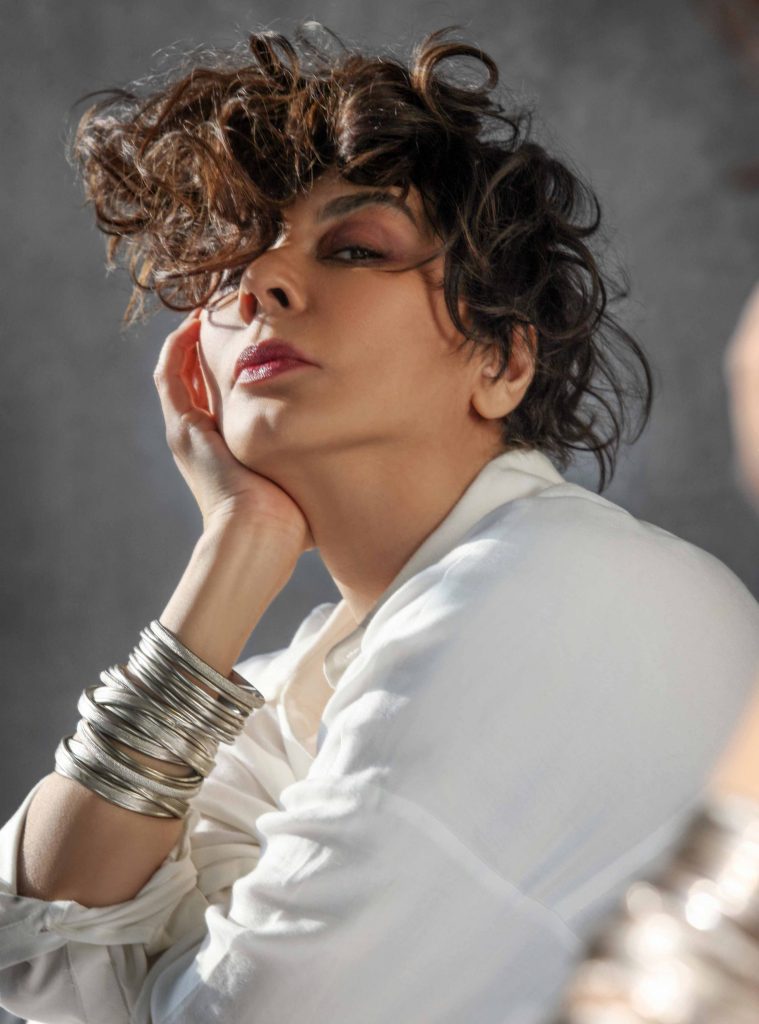 Tell us more about your involvement with Goal 8, what this initiative achieves for the victims of modern day slavery, and your role as one of the founder members of the Global Sustainability Network?
Tell us more about your involvement with Goal 8, what this initiative achieves for the victims of modern day slavery, and your role as one of the founder members of the Global Sustainability Network?
NM: Goal 8 is a UK-based organization, which is a part of the Global Sustainability Network. There are 17 goals and different organizations have chosen different goals. As one of the founder members, we have adopted Goal 8 and are using our platform to eradicate modern day slavery, which includes bonded and child labor, sex trafficking, forced marriages and organ trafficking. Anything that is essentially done against your will is forced. It is a form of slavery where people are mentally, emotionally and physically in chains.
We are working closely with various platforms that are working towards the same goal. The idea is to eradicate modern day slavery by 2030. We have our annual progress monitor for it as well and I am going to establish the Pakistan chapter. Many Pakistani families hire underage housekeepers starting from the age of 15. That is child labor. There are forced marriages taking place across Pakistan.
I have friends who would hire a child to look after their children. I know friends who would slap their drivers, and it is considered normal. Gentrified, educated people are doing all of this. We have a lot of slavery in our country but we just don’t want to admit it.
Has our government taken enough measures to curtail slavery in Pakistan? What more can the government and other NGOs and nonprofits do to mitigate slavery?
NM: I am working with a few NGOs in Sindh and Punjab but they are fragmented and can only help in a limited capacity. We help these credible NGOs make use of our platform to network. I recall when a Pakistani born British lawyer came to attend one of our events in the Vatican. I connected him with an NGO to have child prisoners escorted out of Greece. There were so many Pakistani child prisoners in Greece that no one was catering to.
I am thankful to God for giving me the opportunity to bring change in someone’s life through personal efforts. However, if we make these efforts collectively, and we synergize, and have the blessing of a corruption free platform, there is so much we can do. Everyone is making fragmented efforts. We need to come together.
What other causes are you passionate about?
NM: I have personally made my livelihood out of vocation. If you remember my story, I sold my diamonds and enrolled in a 35 weeks course, came back and started earning. Education doesn’t really make a difference in my line of work. There is no college degree required. That is how I have empowered people to work with me.
I have helped people in my salon who come from different backgrounds including minorities, the marginalized poor, uneducated individuals, the transgender community and even janitors. If you have the talent and are willing to learn and work hard, I will teach you. It will be a life-changing experience when I teach you because your skills, your confidence, your earning, your emancipation level and your general lifestyle will change. So, vocational training is very dear to me and I will go very deep into training individuals through Hunar Foundation.
Give our aspiring readers something to take away from your interview. Maybe a personal life experience you have learned from that could help them too?
NM: That is a very profound question. Generally in life, what I have learned is that you need to follow your heart, and it is a very simple thing to do. Sometimes we are unable to hear our inner voices because we have so much clutter in terms of people and noises that surround us.
We listen to so many life lessons from other people’s filters that we don’t have the required vision or wisdom to look inside of ourselves. If you pause everything and look inwards, you would come up with a lot of answers that would be your own. You would see your reality, your solutions. Sometimes we don’t take that one step inwards to discover the whole world that exists. I think life is very simple; we shouldn’t complicate it.
INTERVIEW: HAIDER RIFAAT
PHOTOGRAPHS: RIZWAN HAQ
![]()











































